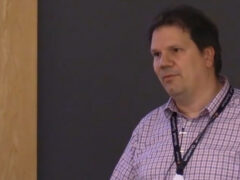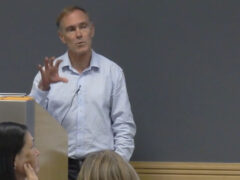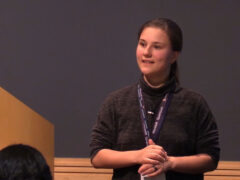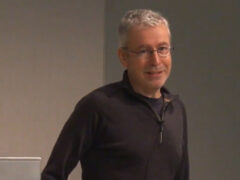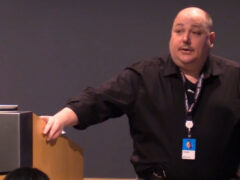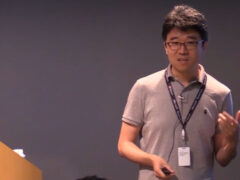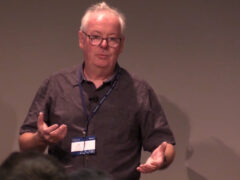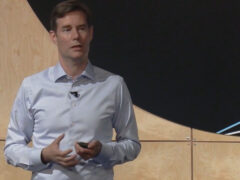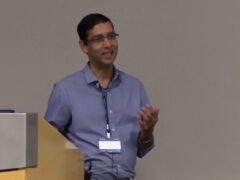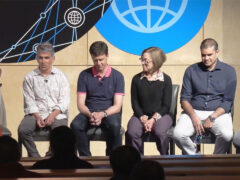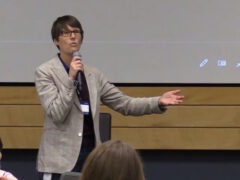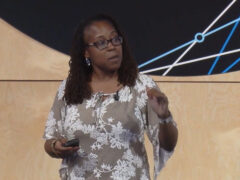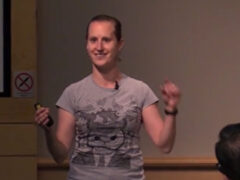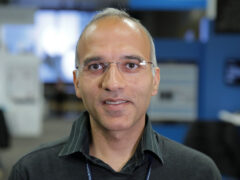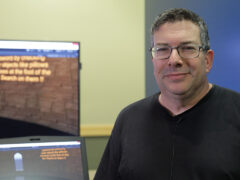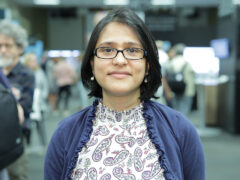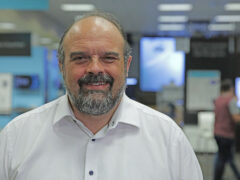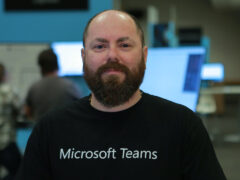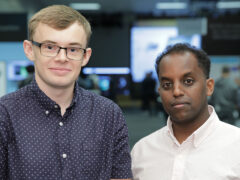The Coming Genomics Software Revolution
A hardware revolution has slashed the cost of sequencing by over a million-fold in a few years, far faster than Moore’s law, opening great opportunities for software to revolutionize healthcare. This session will explore how the combination of the $1,000 genome with molecular diagnostics and electronic medical records, across millions of patients, will transform medicine, making it not just personalized, but also predictive, preventive, and participatory. You will hear about a pioneering program to follow 100,000 well patients, building for each individual a multi-dimensional data model to optimize their wellness and minimize their disease. We will also discuss how genomic data is being used in the clinic to personalize cancer therapies to individual patients; the computational analysis of HIV evolution, transmission, and immune response, to improve the effectiveness of therapeutics and vaccines; and how to efficiently scale genomic analysis into the cloud.
Speaker Details
Dr. Leroy Hood has made many seminal discoveries in the fields of immunology, neurobiology, and biotechnology and is a leader in the development of systems biology, its applications to cancer, neurodegenerative disease, and the linkage of systems biology to personalized medicine. Hood is now pioneering new approaches to P4 medicine—predictive, preventive, personalized and participatory, and most recently, has embarked on creating a P4 pilot project on 100,000 well individuals, that is transforming healthcare.
Dr. Van Allen is an Instructor in Medicine at Harvard Medical School and a medical oncologist at Dana-Farber/Partners Cancer Care. His research focuses on computational cancer genomics, the application of new technologies such as massively parallel sequencing to personalized cancer medicine, and resistance to targeted therapeutics. He has created an analytical platform for the clinically oriented analysis and interpretation of massively parallel sequencing data from prospectively acquired patient tumors. He also studies computational approaches to characterizing tumor genetic alterations from clinical samples at the time of initial treatment and once there is evidence of treatment resistance in multiple tumor types. Overall, his research focuses on the field of precision cancer medicine and resistance to targeted therapeutics via expertise and study in translational and clinical bioinformatics. Dr. Van Allen studied Symbolic Systems at Stanford University, received his MD from the David Geffen School of Medicine at UCLA, and completed an internal medicine residency at UCSF before coming to Dana-Farber Cancer Institute for his medical oncology fellowship.
A hardware revolution has slashed the cost of sequencing by over a million-fold in a few years, far faster than Moore’s law, opening great opportunities for software to revolutionize healthcare. This session will explore how the combination of the $1,000 genome with molecular diagnostics and electronic medical records, across millions of patients, will transform medicine, making it not just personalized, but also predictive, preventive, and participatory. You will hear about a pioneering program to follow 100,000 well patients, building for each individual a multi-dimensional data model to optimize their wellness and minimize their disease. We will also discuss how genomic data is being used in the clinic to personalize cancer therapies to individual patients; the computational analysis of HIV evolution, transmission, and immune response, to improve the effectiveness of therapeutics and vaccines; and how to efficiently scale genomic analysis into the cloud.
Ravi Pandya is in the eScience group at Microsoft Research, where he works on high-performance algorithms for genome alignment, assembly, and structural variation. He is one of the authors of the SNAP short-read aligner, which can produce high-quality genome alignments 3-10x faster than other state-of-the art aligners. He is also involved in the BeatAML collaboration between Microsoft Research, UC Berkeley, and Oregon Health & Science University, to apply machine learning, predictive analytics, and systems biology to recommend personalized, targeted drug combinations for recurrent leukemia patients in an upcoming clinical trial. He has been a software architect at Microsoft for 11 years, previously working on Rights Management Services, Windows Security, operating systems incubation, and the Orleans distributed computing framework powering the Halo 4 web services. Prior to joining Microsoft, he worked at a range of startups, including molecular modeling, hypertext, group collaboration, and software agent technology.
- Date:
- Speakers:
- Lee Hood, Eliezer Van Allen, Jonathan Carlson, and Ravi Pandya
- Affiliation:
- Institute for Systems Biology, Harvard University, Microsoft Research, Microsoft
-
-

Jonathan M. Carlson
Managing Director, Health Futures
-
Jeff Running
-

Ravi Pandya
Principal Data Scientist
-
Series: Microsoft Research Faculty Summit
-
-
Quantum Computing and Workforce, Curriculum, and Application Development: Case study
Speakers:- Krysta M. Svore,
- Martin Roetteler
-
-
-
-
Crowd, Cloud and the Future of Work: Updates from human AI computation
Speakers:- Besmira Nushi,
- Vani Mandava
-
-
-
-
-
Empowering People to Achieve More: How Useful a Concept is Productivity?
Speakers:- Brendan Murphy
-
-
Productivity in Software Development
Speakers:- Neel Sundaresan,
- Margaret-Anne Storey,
- Prem Kumar Devanbu
-
-
-
-
-
-
-
Accessible Virtual Reality
Speakers:- Eyal Ofek
-
Calendar.help: A Virtual Meeting Scheduling Assistant
Speakers:- Pamela Bhattacharya
-
Visual Studio IntelliCode
Speakers:- Mark Wilson-Thomas
-
Microsoft Teams: Collaborate with Any Researcher Anywhere
Speakers:- Jethro Seghers
-
Project Alava: Programming Webs of Microcontrollers
Speakers:- James Devine,
- Teddy Seyed
-
AI in PowerPoint
Speakers:- Kostas Seleskerov


